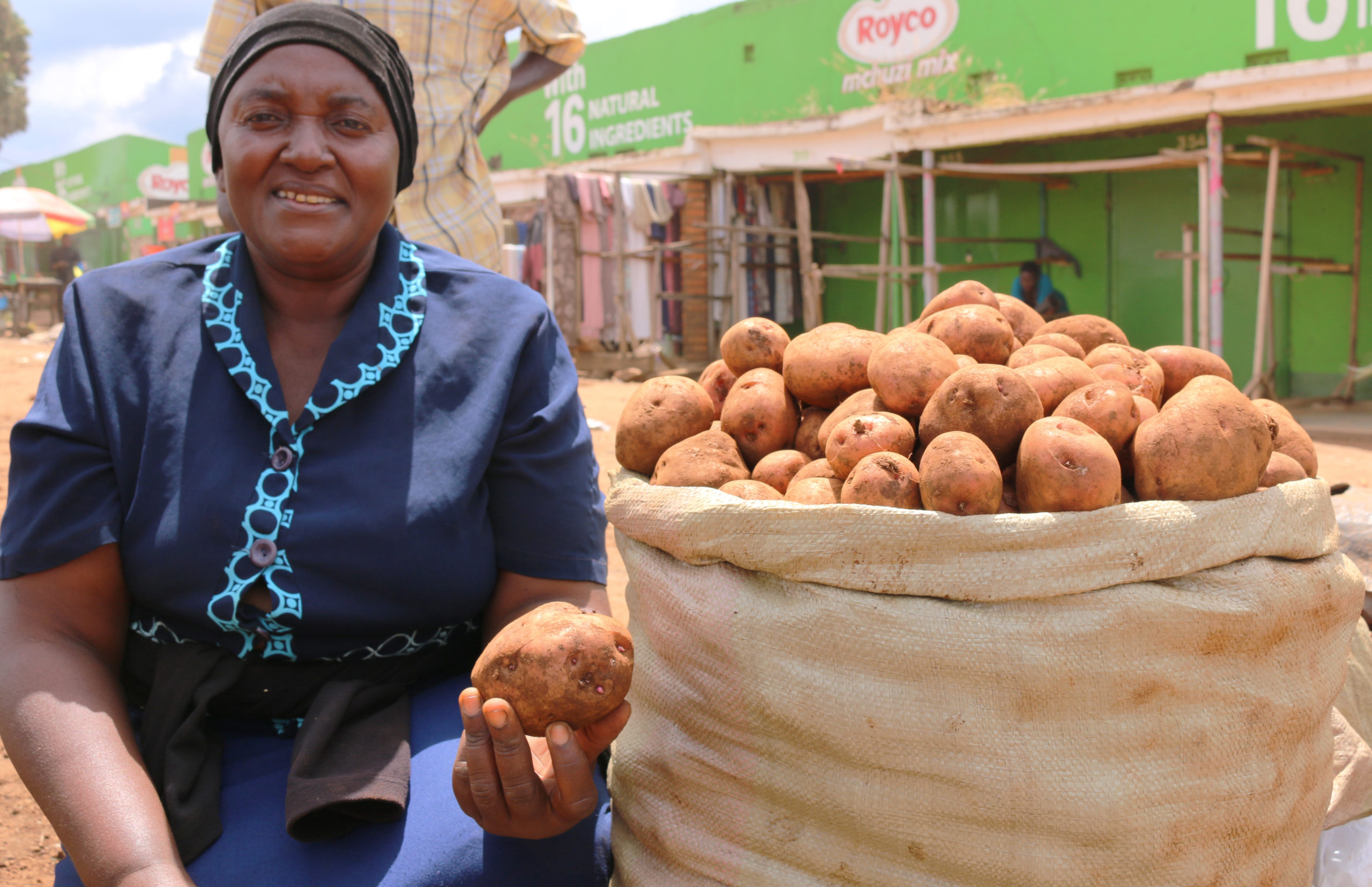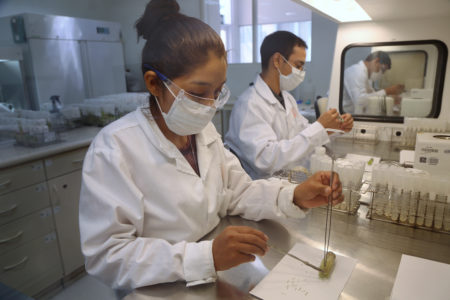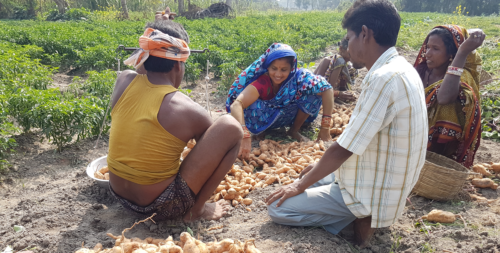
Potato has under exploited potential to contribute to food security and income generation among Ugandan small-scale women and men farmers. This project focuses on building the skills of private sector early generation seed producers and decentralized seed multipliers and improving current ware potato storage and marketing practices to ease the high seasonal market price fluctuations.
Background
Potato is an important food security crop and a major source of household income for small-scale farmers in the southwestern and eastern Ugandan highlands. It provides a nutritious, cheap, short-season crop, and compared to other crops, generally tolerates environmental stresses better, such as lack of rainfall and attack from pests and diseases. However, most Ugandan smallholders use seed potatoes that are infected with pathogens, hence their yields and income remain low. They normally recycle their own seed or use seed obtained without any quality control or certification, thereby exacerbating the spread of potato tuber diseases. Furthermore, the lack of effective storage technologies and practices means that they tend to sell their potatoes immediately after harvest, with limited value addition and at a low price.
This project builds on earlier work of the International Potato Center (CIP), as well as others, to support decentralized seed potato multiplication in Uganda. This system is based on small-scale seed producers located in potato-growing communities who supply quality planting materials in a timely manner and at affordable prices to farmers. However, due to the lack of available early generation seed, the volumes of quality seed potato produced by decentralized seed multipliers are low. Moreover, private sector investment in commercial seed potato production remains insufficient. This is largely due to the informal nature of seed supply, and the bulkiness and perishability of the crop.
Objectives
- Introduce and evaluate the technical and economic feasibility of using the novel ‘rooted apical cutting’ technology in seed potato production systems; and
- Enhance knowledge on the pros and cons of the current ware potato storage and marketing practices in Uganda with view to sharing experiences and scaling up successful approaches
Approach
The project exploits an alternative seed potato propagation method using rooted apical cuttings, which are produced in screenhouses by vegetative propagation of in-vitro plantlets and later transplanted to the field for seed tuber production. This method has been successfully piloted in Kenya and shows significant potential for making time and cost savings as compared with current practices which rely on mini-tubers to provide starter material for further field multiplication. In addition, this technology could form the basis for new farmer-based or small-scale enterprises.
The second approach is to study options for better ware potato storage and marketing. There is currently a mismatch between supply and demand of ware potato, causing large seasonal price fluctuations that negatively affect farmers and processors alike. The project assesses the performance of improved individual and group ambient stores which have already been piloted in Uganda. Better storage and marketing practices would reduce post-harvest losses and even out seasonal price variations, benefiting all actors along the value chain. But there is currently insufficient data on the efficacy, profitability and management of the different types of improved ambient stores promoted. Furthermore, the project incorporates a focus on understanding how gender and other socio-economic factors influence farmer and trader ware potato storage and marketing practices, profitability, and access to improved group ambient storage facilities.
Expected outcomes
Two key early-generation seed potato production companies—Agro-Genetic Technologies and Agromax— will receive inputs, training and technical support, enabling them to produce and market disease-free rooted apical cuttings of popular, high-yielding potato varieties. An additional 30 decentralized seed multipliers in eastern Uganda and partners will benefit from training in the use of rooted apical cuttings as starter material for further seed potato multiplication.
The project team will follow up and document the production performance the rooted apical cuttings and their subsequent stages of field multiplication, and prepare and distribute production manuals based on the resulting data. Marketing plans will also be developed to promote the dissemination of the rooted apical cuttings to seed multipliers. Better access to early-generation seed for decentralized seed multipliers is expected to enhance the volumes of quality seed potato produced. This is expected to increase demand for quality seed which will in turn lead increased farmer yields, food security and farmer income.
Data will be collected and a cost-benefit analysis conducted on the available options for ware potato storage, which include traditional and improved ambient storage by individuals and groups. A graduate student at Makerere University and other project stakeholders will benefit from capacity-building in data collection and analysis and the findings of their research will be made available to partners.
Key outcomes
| Outcome | Number |
| Key private seed companies using rooted apical cutting technology | 2 |
| Decentralized seed multipliers using rooted apical cutting technology | 30 |
| Performance of the rooted apical cutting technology in Uganda documented | – |
| Marketing strategy for rooted apical cuttings developed | 1 |
| Farmer and trader ware potato storage and marketing practices documented | – |
| Profitability and management performance of improved ambient ware potato stores documented | – |
| MSc thesis submitted | 1 |
Contact
Pieter Wauters
CIP, Uganda
p.wauters@cgiar.org
Thanks to our donors



